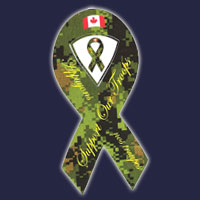Soldier should not be facing charges for killing a wounded enemy
By Peter Worthington: The Toronto Sun
Last Updated: 18th January 2010, 8:19am
When Capt. Robert Semrau’s court martial starts next Monday, it will be the first time in the long history of the Canadian army that a soldier on the battlefield, in a war, faces murder charges for killing a wounded enemy.
In no way should this imply that it’s the first time this has happened.
In every war Canada has fought, things happen on the battlefield that rules and traditions forbid, but which are deemed necessary at the time. Invariably, silence prevails.
Semrau’s patrol of mainly Afghan soldiers, for whom he was a mentor and trainer, was ambushed in October 2008 in the volatile Helmand province. Two months later, he was charged with murdering a gravely wounded Taliban fighter.
When the ambush was broken, two shots were heard and it was presumed the wounded Taliban insurgent was killed. Later Semrau, 35, was charged with second-degree murder, attempted murder (odd, but one supposes this is in case the murder charges collapse). Other charges are “behaving in a disgraceful manner,” and “negligently performing a military duty” — both of which seem absurd, considering Semrau’s exemplary record of three years in the British army (Macedonia and Iraq) before joining the Canadian army in 2005 and serving with the Royal Canadian Regiment in Afghanistan.
It would seem Semrau’s choice on the battlefield that Oct. 19 was either to leave the wounded man to the mercies of Afghan soldiers, or to abort the patrol to attend to the mortally wounded man.
Aborting the patrol would have meant the ambush had succeeded in deterring the patrol. Semrau opted to continue the mission, which was his prime duty.
However the trial in Gatineau, Que., turns out, it is unprecedented and startling.
And in my view, should never be taking place.
Of course, once an official complaint was made, high command really had no choice. The soldier who “informed” on his officer is another story — and I cannot imagine him staying in the army, where I suspect he’s reviled and despised by fellow soldiers.
As one who has been in a war, been on a battlefield, faced a determined enemy, I have some sympathy with Semrau’s situation. As an officer, the responsibility for a quick decision was his alone — and a life-and-death one at that.
My battlefield experiences — apart from those encountered in journalism — involved the Korean war. I suspect I may be the only working journalist in Canada today who has been a platoon commander in a war.
Looking back, I can see myself and other field commanders reacting as Semrau may have reacted. What I would not expect — and cannot even imagine — is men I served with blowing the whistle if I had to make the sort of decision Semrau faced.
I think my reaction is pretty typical of my generation of wartime soldiers.
After D-Day, in the Second World War, Canadian soldiers shot German prisoners in retaliation for the SS summarily executing Canadian prisoners. Nothing was said, nothing done. No remorse. No recriminations. Just silence.
With no body, no identity, perhaps no credible witnesses, no tangible proof, the case against Semrau may founder. A crime may be difficult to prove.
Ironically, former U.S. presidential candidate John Kerry was awarded a Silver Star in Vietnam for killing a wounded enemy who was trying to kill him. If found guilty, Semrau faces prison. Some difference!
As a fine officer and excellent soldier, I hope the army doesn’t lose Saskatchewan-born Robert Semrau.
Monday, January 18, 2010
Subscribe to:
Post Comments (Atom)



1 comment:
Have you read ret. Lt.Col. Tim Collin's memoir "ROE"?
Same sick story!
And then you can see what's behind it; somebody absolutely wanted to set him up.
I wonder who wants and needs this soldier convicted?
Post a Comment